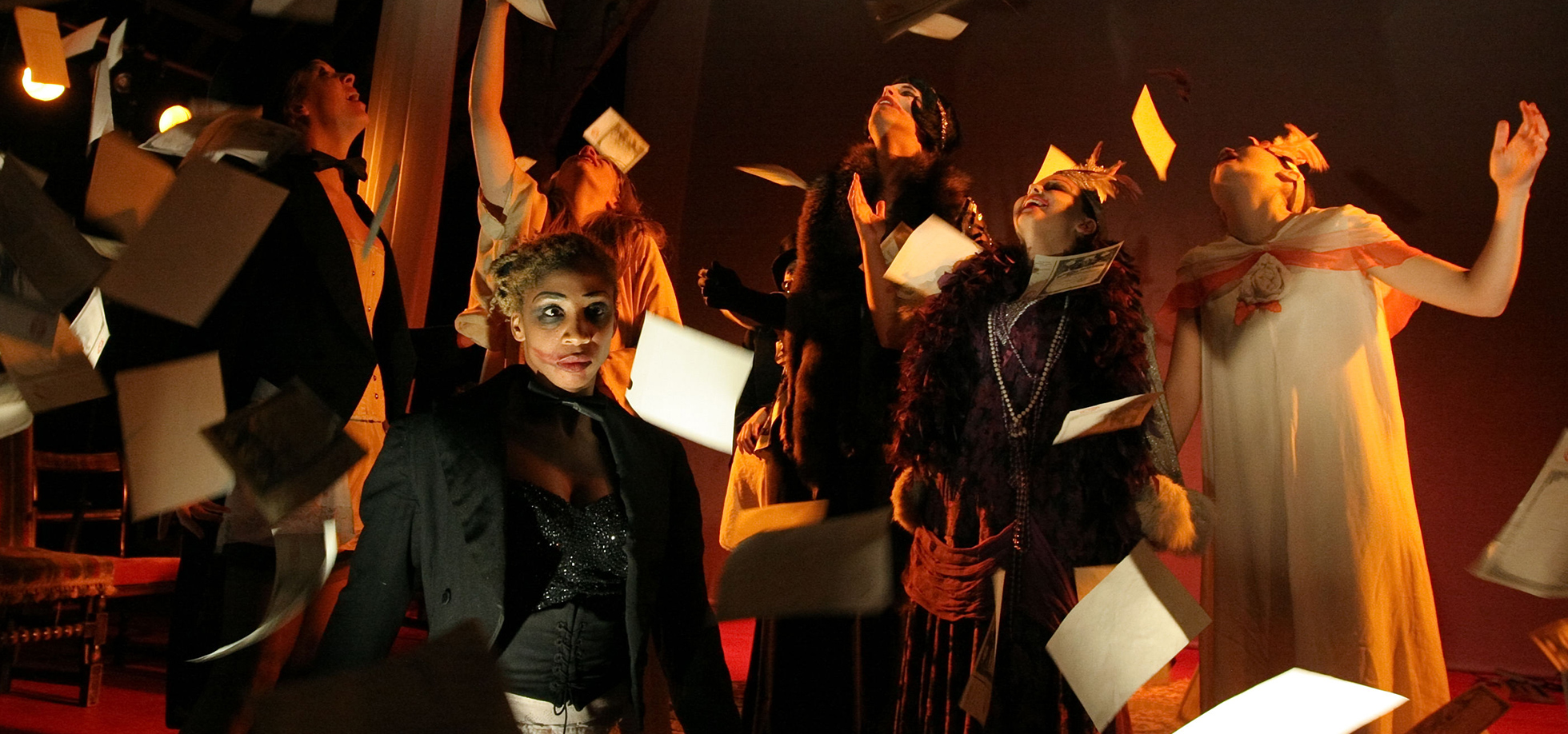
In this module you will develop and apply the rigorous foundation work of EA114-1-FY and apply it to the more demanding dramatic texts being worked on in the second year acting courses EA211-2-FY and EA212-2-FY. You will connect movement, voice and acting. You will begin exploring accents and dialects in more detail with a view to both acquiring accents and developing the skills and tools with which to work on accents throughout your career as an actor. You will begin to examine the vocal demands of different performance spaces, including outdoor performances, and develop your ability to give life to complex texts. The vocal demands of a range of performance styles, for example, Commedia dell'Arte, will be explored and students will be given opportunities to apply their vocal techniques to devised and text work of increasing complexity. The course is designed to prepare students for independence, to ensure that they enter their third year with voices of professional standard and the vocal training necessary to maintain them.
Module Content
Term One
Developing articulatory skills through drilling, exercises and text work
Developing greater breath support and physical energy
The vocal pitfalls of naturalism
Fluency, expressive connection and range in RP
Use of language and rhythm in Shakespeare
Exploring speeches from Bernard Shaw and Oscar Wilde and their specific posture, breath, range and accent issues.
Connecting Acting Choices to practical voice work (creating a unit between mind, voice and body through breath and body support)
Term Two
Overcoming blocks in RP
Vocal and emotional connectivity to intellectually demanding texts
The expression of character emotions in accents of English
Adapting breath and articulation to the demands of text and character
The use of the full range of pitch and resonance to express character, language and emotion.
To look at the use of language and rhythm in the work of Shakespeare and to connect acting choices to vocal performance.
Term Three
Use of the voice in different spaces
Specific vocal demands of different performance styles eg commedia dell'arte
Leading group warm-ups and work-outs
Refining sensitivity, power and passion in the voice
Demonstrating a professional commitment to voice work.
Module Content
Term One
Developing articulatory skills through drilling, exercises and text work
Developing greater breath support and physical energy
The vocal pitfalls of naturalism
Fluency, expressive connection and range in RP
Use of language and rhythm in Shakespeare
Exploring speeches from Bernard Shaw and Oscar Wilde and their specific posture, breath, range and accent issues.
Connecting Acting Choices to practical voice work (creating a unit between mind, voice and body through breath and body support)
Term Two
Overcoming blocks in RP
Vocal and emotional connectivity to intellectually demanding texts
The expression of character emotions in accents of English
Adapting breath and articulation to the demands of text and character
The use of the full range of pitch and resonance to express character, language and emotion.
To look at the use of language and rhythm in the work of Shakespeare and to connect acting choices to vocal performance.
Term Three
Use of the voice in different spaces
Specific vocal demands of different performance styles eg commedia dell'arte
Leading group warm-ups and work-outs
Refining sensitivity, power and passion in the voice
Demonstrating a professional commitment to voice work.